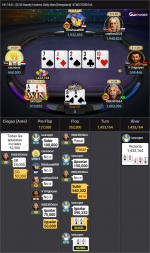CRStals
Moderator
Moderator
CardsChat Learning Series | Part 2 of 6 – Position Play & Tournament Game Stages
Learn how to defend from the big blind more profitably in tournaments and cash games. In Part 2 of our CardsChat Learning Series on position and game stages, we’re digging into how to play profitably from the big blind across different spots and against different player types.
💡 Missed Part 1? Click here to catch up on Blind vs Blind strategy »
🔍 What We’ll Cover:
💥 Facing UTG or Middle Position Raises
When you're in the big blind and face a raise from early or middle position, red flags should go up. These are typically tighter ranges — and stronger hands.
📊 Sample UTG Range (~15%):
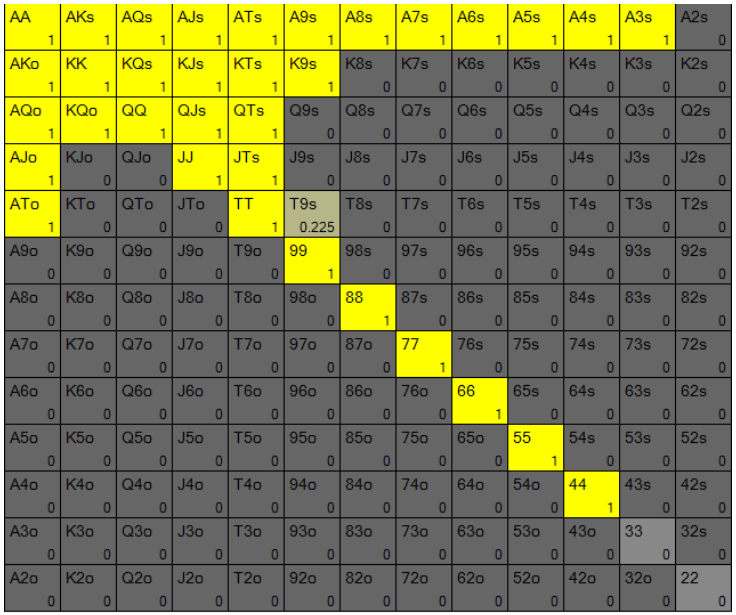
📊 Sample MP Range (~25%):
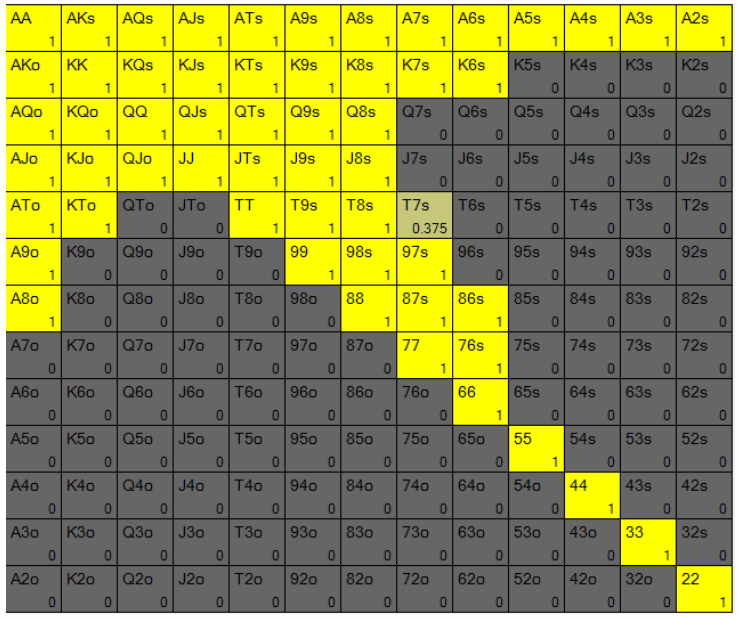
Key Takeaways:
🎯 Facing the Cutoff or Button
As you move around the table, open-raising ranges get wider — especially from the button. You’ll be facing significantly more marginal hands here.
📊 Typical BTN Range (~40%):
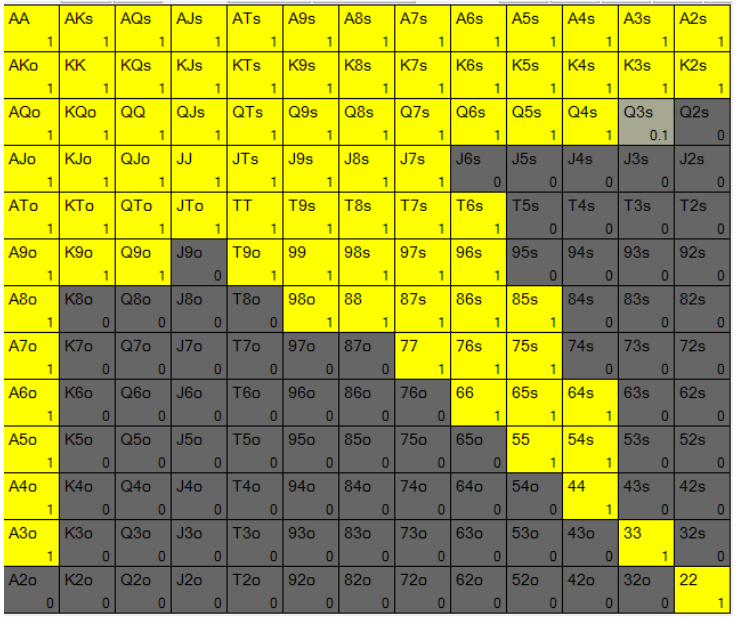
Big Blind Response:
🤔 What to Do When They Limp?
When action folds around and players limp in, you’re not forced to add chips — but your response needs to be balanced. Many players make their range transparent here.
Two solid approaches:
🧠 Multi-Way Pots: Tread Carefully
Multi-way action from the big blind is where many players leak chips. Sure, your pot odds improve — but post-flop play gets a lot more complicated.
Questions to Ask Yourself:
🎯 Summary: Mastering the Big Blind
The big blind is a -EV seat by nature — but playing it well is what separates the long-term winners from the rest.
Use your pot odds wisely, read opponents with intention, and adapt your response based on stack dynamics. The more confidently you defend this spot, the less it will cost you over time — and the more you’ll steal back post-flop.
💬 How Do You Handle the Big Blind?
Do you 3-bet light vs the button? Trap limpers? Or fold anything marginal and move on?
Drop your strategy (or hand history) below — let’s learn from each other before we move into Part 3: When & How to Widen Your Range.
🔔 Subscribe to the CardsChat Learning Series
So you never miss the next drop! Turn on notifications and keep sharpening your edge — one position at a time.
You can find all our poker learning series right here: CardsChat Learning Poker Thread Series Guide
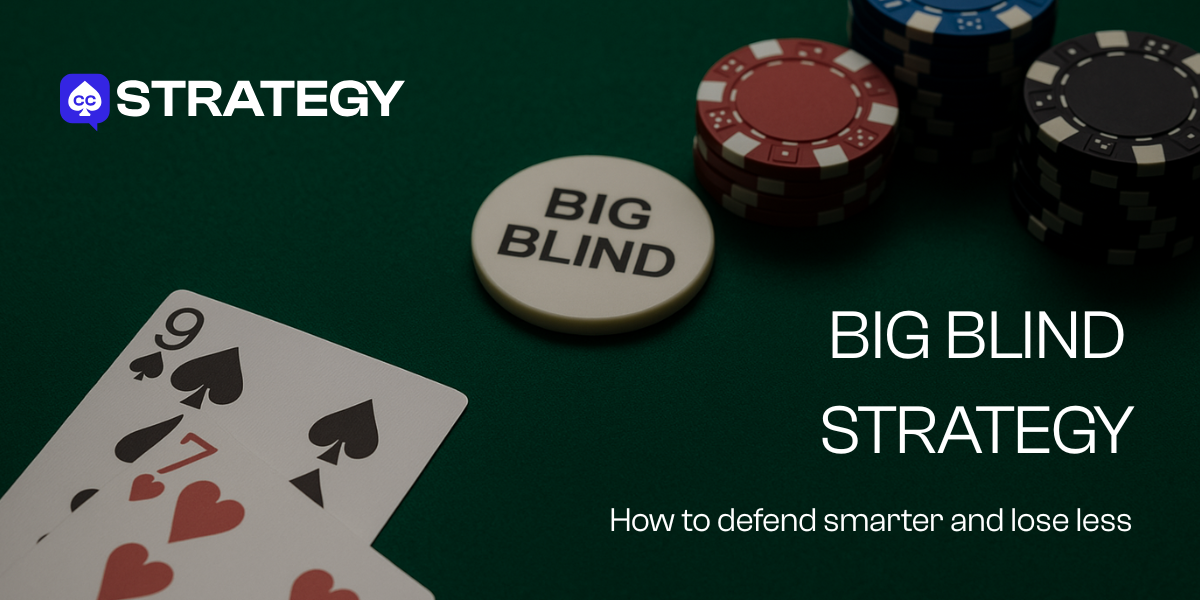
Learn how to defend from the big blind more profitably in tournaments and cash games. In Part 2 of our CardsChat Learning Series on position and game stages, we’re digging into how to play profitably from the big blind across different spots and against different player types.
💡 Missed Part 1? Click here to catch up on Blind vs Blind strategy »
🔍 What We’ll Cover:
- Facing Raises from UTG or Middle Position
- Defending vs. the Cutoff and Button
- When the Action is Limped to You
- Multi-Way Pots from the Big Blind
- How Pot Odds, Player History & Stack Depth Shape Every Decision
💥 Facing UTG or Middle Position Raises
When you're in the big blind and face a raise from early or middle position, red flags should go up. These are typically tighter ranges — and stronger hands.
📊 Sample UTG Range (~15%):

📊 Sample MP Range (~25%):

Key Takeaways:
- Pot Odds: You’re likely getting 2.25:1 or better, meaning you need ~40% equity to call — opening the door to defend wider than many players realize.
- History: If the raiser has been aggressive or loose, consider 3-betting the top and bottom of your range and flatting the middle. They’ll often miss low to mid flops, giving you bluff opportunities post-flop.
- Stack Depth: Be cautious when short-stacked. Don’t bleed chips defending speculative hands you can’t profitably continue with.
🎯 Facing the Cutoff or Button
As you move around the table, open-raising ranges get wider — especially from the button. You’ll be facing significantly more marginal hands here.
📊 Typical BTN Range (~40%):

Big Blind Response:
- Pot Odds: Still great, so calling is fine — but widen your 3-betting range, especially with hands that dominate junk like Q-9, J-8 suited, etc.
- History: Watch for stealers. If a player opens every button, fight back — especially with hands that flop well.
- Stack Depth: If stacks are deep, lean toward calling and playing pots in position. If shallow, consider jamming or folding rather than flatting with marginal hands.
🤔 What to Do When They Limp?
When action folds around and players limp in, you’re not forced to add chips — but your response needs to be balanced. Many players make their range transparent here.
Two solid approaches:
- Check 100% of the time, even with premiums like A-A or 7-2 off-suit. You give away zero info and keep opponents guessing.
- Randomized action: Use something external — like the seconds on the clock — to decide whether to raise or check. The goal: never give your opponent a consistent read based on pre-flop action.
🧠 Multi-Way Pots: Tread Carefully
Multi-way action from the big blind is where many players leak chips. Sure, your pot odds improve — but post-flop play gets a lot more complicated.
Questions to Ask Yourself:
- Pot Odds: Great, but is your hand playable post-flop? Avoid dominated offsuit hands with no post-flop plan.
- Player History: Do you know how each player behaves post-flop? Are they passive callers, or do they float and stab often?
- Stack Sizes: Can you afford to call and whiff the flop? Or better yet — can you shove and get everyone to fold?
🎯 Summary: Mastering the Big Blind
The big blind is a -EV seat by nature — but playing it well is what separates the long-term winners from the rest.
Use your pot odds wisely, read opponents with intention, and adapt your response based on stack dynamics. The more confidently you defend this spot, the less it will cost you over time — and the more you’ll steal back post-flop.
💬 How Do You Handle the Big Blind?
Do you 3-bet light vs the button? Trap limpers? Or fold anything marginal and move on?
Drop your strategy (or hand history) below — let’s learn from each other before we move into Part 3: When & How to Widen Your Range.
🔔 Subscribe to the CardsChat Learning Series
So you never miss the next drop! Turn on notifications and keep sharpening your edge — one position at a time.
You can find all our poker learning series right here: CardsChat Learning Poker Thread Series Guide
















